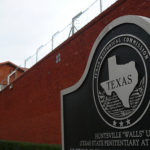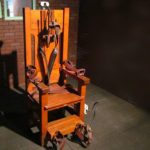Death penalty opposition at high level. More than one-third of Americans now oppose the death penalty—the highest level in nearly 40 years—according to a new Gallup Poll. Moreover, those who believe the death penalty is being applied fairly and those who say it isn't used often enough are at the lowest levels in a decade, underscoring significant changes in attitudes, USA Today reported. The Gallup Poll found 35 percent oppose the death penalty—the highest opposition since March 1972. That year, the Supreme Court ruled the death penalty was constitutional unless it was applied unfairly. By 1976, several states reinstituted capital punishment. Now 40 percent in the most-recent poll believe the death penalty isn't imposed often enough, the lowest level since 2001.
Protestant giving hits record low. Tithing to Protestant churches as a percentage of income is at its lowest level in at least 41 years, according to a new report, and churches are keeping a greater share of those donations for their own needs. Parishioners gave about 2.38 percent of their income to their churches, according to "The State of Church Giving through 2009," a new report by Empty Tomb, a Christian research agency in Champaign, Ill. Just over 2 percent of income went toward congregational finances, such as operating costs and building expenses. Only 0.34 percent of parishioner income went to charities and seminary training beyond the four walls of the church. Those are new lows, at least going back to the first report in 1968.
Bishops warn that church teaching is nonpartisan. With the 2012 campaign gearing up, U.S. Catholic bishops reminded Catholic voters they can't cherry-pick from church teachings to justify their own political preferences, and cautioned both sides not to edit the bishops' statements into voter guides to back one party or another. The bishops' warning came in a special introduction to "Forming Consciences for Faithful Citizenship," a 30-page document on the responsibilities of Catholic voters that has been issued before every presidential election cycle since 1976. But the biggest challenge for the bishops may be getting their message read by rank-and-file Catholics. A recent poll of U.S. Catholics showed just 16 percent have ever heard of the bishops' document on politics, and just 3 percent say they have read the statement in past election cycles.
Future English royal wedding for a Catholic? Future British kings and queens would be permitted to marry Catholics for the first time in more than three centuries under reforms proposed by British Prime Minister David Cameron. In a letter to his fellow heads of government in the British Commonwealth, Cameron outlined several proposed amendments to the 1701 Act of Settlement, which bars Catholics and the spouses of Catholics from the British throne. Cameron did not propose lifting the ban on a Catholic becoming the monarch, who also serves by law as the supreme governor of the Church of England. Approval of all 16 Commonwealth "realms" would be necessary for any changes in the law governing royal succession.
–-Compiled from Religion News Service














We seek to connect God’s story and God’s people around the world. To learn more about God’s story, click here.
Send comments and feedback to Eric Black, our editor. For comments to be published, please specify “letter to the editor.” Maximum length for publication is 300 words.